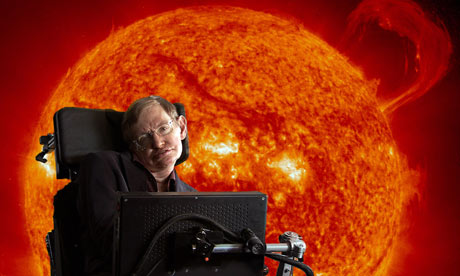
Stephen Hawking has announced that heaven “is a fairy story for people afraid of the dark”. And, because he’s a scientist, he’s allowed to make unscientific statements of belief and present them as virtual fact.
What’s worth doing is to pick out the unscientific assumptions in any statement a scientist makes when they talk about faith (whether they’re pro-faith or not).
Here’s what Professor Hawking said in his interview, complete with an “assumption alarm”:
“I regard the brain as a computer… (ASSUMPTION: just because we know a little of how the brain works, doesn’t mean it is merely an organic computer…)
“which will stop working when its components fail. There is no heaven or afterlife for broken down computers… (ASSUMPTION: the unspoken beliefs here are that a human is nothing more than a brain with a body round it, and that a brain cannot be restarted when it “breaks down”…)
"that is a fairy story for people afraid of the dark (ASSUMPTION: just because the thought of heaven is comforting to those who fear death, doesn’t mean it’s not actually true…).
“The universe is governed by science… (ASSUMPTION: science can’t prove that scientific laws are impersonal and happen to be as they are, rather than the way in which a personal Creator has decided to make and run a universe…).
“[Because we happen to be here] we should seek the greatest value of our action… (ASSUMPTION: this assumes that we know what all the consequences of an action would be, and that we can agree on what the greatest value of an particular action is. This is a moral question, which can’t be answered by scientific endeavour).”
If you’d like to see a useful answer on why science hasn’t disproved Christianity (including the idea of heaven), have a watch of this.